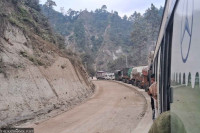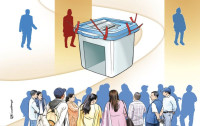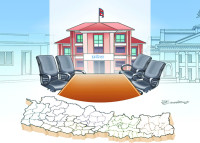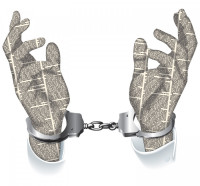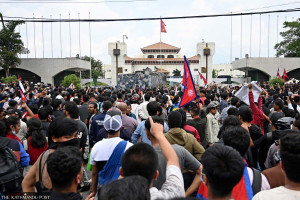Opinion
Federalism and development
The failure of the government to provide relief to victims of natural disasters drives home the need for federalism
Prakash Bom
Given the major political parties’—particularly the Nepali Congress (NC) and CPN-UML—professed commitment to federalism, it would be quite incongruous to raise the question of why Nepal needs federalism. Besides, if the NC and UML still have doubts and seek clarity on this question then it means the party establishments have either not fully accepted federalism or do not earnestly yearn for true federalism to transform the current unitary nature of the state.
It ought to be precisely clear to the people’s elected representatives in the Constituent Assembly (CA) that federalism is not a political ideology but a system of government. It has been successfully practiced under the 20th century’s representational democracy under greater political necessity to share state power with different level of governments—federal (central), state and local—with rights to self-governance. This means that administratively, all units of the government are independent under the constitution of the federal nation (union) to design, develop and administer their domains of finance, development, law enforcement and courts, with various conditions, however. Therefore, the delineation of government units under federalism cannot be agreed upon without the right to self-governance.
Central government failures
In Nepal, elements of the existing unitary system government, particularly public administration, law enforcement and the judicial system, cannot continue as they are. For example, under the current district public administration, the Chief District Officer (CDO), who has power to enforce the law and deliver justice, can bypass both the attorney and court, in some cases. This needs to be done away with altogether. Instead, law enforcement must be independently administered by the police force and the attorney general at all levels of the government unit in coordination with the court system.
Another answer to the necessity of federalism in Nepal is the failure of the government to deliver prompt relief to the victims of landslides and floods throughout the nation. For example, efforts were initiated by the private sector at the local level, as with the Sindhupalchok Commerce and Industries Association, who carved out a kilometer-and-a-half track of the Araniko Highway buried under a landslide, for which the government could not take a decision for over a month. This proves how slow and indecisively the unitary system of government works, given its hierarchical chain of command. Even public donations need to be collected at the central level to help local victims of natural disasters, which requires official data collection for distribution and so on. As a result, local victims continue to suffer unnecessarily in life-threatening situations.
In similar situations, the federated Indian states of Uttar Pradesh and Bihar are coping much better by efficiently delivering support to victims of natural disasters. Had Nepal been a federal state, state and local governments would have delivered help to victims more proficiently, because local governments are equipped with up-to-date data of residency and do not need to wait for decisions from the central government. This is one of the reasons why Nepal desperately needs federalism. In fact, it has become the greatest necessity for good governance.
Another reason why Nepal needs federalism is to address the diversity of identity and culture and provide rights to marginalised communities in order to secure equal opportunities for them to participate in national development through every level of the government mechanism, not only through delineation of federal states but also through legislation. For example, under federalism, with the right to serve a state and local government as a police officer, an attorney, a judge, civil servant or an elected representative, the individual must be a permanent resident of the same state or local government. Similar-ly, the delineation of federal states must take affirmative means to recognise identity in order to guarantee rights and equal opportunity to diverse ethnicities and marginalised communities.
On an ethnicity basis
As a matter of fact, the greater the number of federal states under diverse political necessity, economic capacity and geographical feasibility, the stronger the national integrity. Under federalism, a nation is not big in terms of how large it is in terms of its territory but how diverse it is in terms of its nationality. Under this premise, Nepal is a massive nation and this should be one of the variables for the delineation of federal states for inclusive good governance. Therefore, a nation (as a union) like ours, under federalism, no matter how small, ought to have at least seven federal states or more, considering the diverse political necessity.
However, administrative feasibility cannot be a single variable for delineation as federal states and local governments are not going to be directly administered by the central government. Federal sates and local governments have the right to self-governance, which perhaps the main political parties, such as the UML, have not yet come to accept. Therefore, the party has been making the argument for mixed identity federal states and lately even proposed delineating federal states in the form of the current government’s five development regions.
On the contrary, the NC has yet to affirm the principle that without federalism, multiparty democracy cannot flourish and secure its permanency but instead, might even be toppled easily under a unitary system of government. The NC has yet to assure the whole party that since federal states have the right to self-governance, no dictator can arise because they will need to convince not one state but many. Therefore, forms of governance, such as the Westminster parliamentary system or the modern parliamentary system with a directly-elected executive PM or President, makes little difference. What makes real difference is federalism with a greater number of federal states to secure national integrity and help make multiparty democracy more resilient.
Towards that end, the NC needs the cooperation of the UCPN (Maoist). Perhaps the formation of a High Level Political Committee as a political body to facilitate overarching consensus might help bring all issues to a conclusion.
Bom is associated with the Non-Resident Nepali Association, New York, the US




 5.44°C Kathmandu
5.44°C Kathmandu
